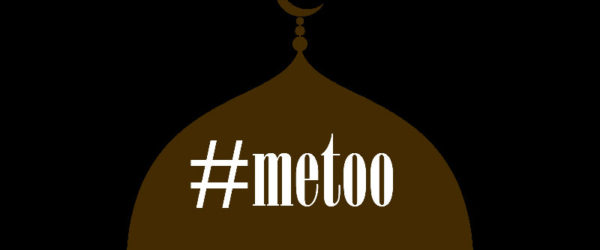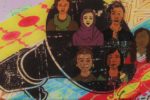For the past few days, social media networks have been filled with the #metoo hashtag. The current campaign calls women to post #metoo in their social media networks, as a way to show how prevalent the problem of sexual violence is across the board. Alyssa Milano, credited with starting the current campaign, explained about the hashtag, “so we might give people a sense of the magnitude of the problem.” Milano is being credited with creating the hashtag as part of the response to Harvey Weinstein’s multiple sexual attacks on Hollywood women; however the hashtag was actually created a decade ago by Tarana Burke. Burke is a Black woman activist, blogger and consultant, who developed #metoo in an attempt to highlight the ways in which Black women experience abuse and sexual violence and to call for a movement.
#metoo has produced a variety of reactions around the world. From solidarity, story-sharing and calls to legislation, to concern, dismissal, anger and re-traumatization. Reactions have further included criticisms of #metoo as an example of how white feminisms coopt Black women’s work. Queer folks have also inquired, how can we talk about sexual violence experiences among LGBTIQ people without erasing men’s violence against women? In addition, survivors have been vocal, including in sharing concerns on why #metoo does not represent some of them. #metoo has also sparked a social media conversation among some cisgender men in the form of the #HowIWillChange hashtag, along with pieces reflecting on racialized masculinity and what it means for cis-men to hold each other accountable. Further, it has raised questions about the spaces that may or may not exist for men who are survivors to share their experiences.
Muslim engagement with the hashtag further highlights the ways in which Muslim women experience sexual violence at the intersection of their identities. Moreover, it has sparked reflections on the challenges that some second and third-generation Muslims face in terms of discussing sexual violence and the ways in which the topic is still considered taboo among some Muslim communities (although not solely). It has also shown the tensions that exist within feminist and women’s movements when discussing sexual violence and the experiences of racialized and Muslim women. Some of the discussions have further reiterated that no type of clothing or “modest attire” protects Muslim women, and otherwise, from sexual violence. And, of course, some Muslim men, have also seen this discussion as an opportunity to remind Muslim women that they do not believe in sexual violence or harassment, while using all sorts of “religious” arguments to justify their statements.
MMW’s Nicole, Anneke and Eren discuss their perspectives on #metoo.
Eren: I can’t lie. Seeing my social media networks inundated with #metoo was difficult, not because I am not aware that 99% of my friends and family who are racialized women or non-binary folks have been harassed or/and assaulted at some point in time. But because it was a reminder that there are no spaces free of these experiences, especially for racialized women and non-binary folks. It is all over the place all the time (unless apparently you are a cis man, and you do not know how big the problem is *eye roll*). Three weeks ago Muslim women were faced with a discussion over spiritual abuse and sexual violence, and we continue to do the work and have these experiences all the time. It makes me wonder, does it ever end?
Nicole: One of my issues with the #metoo campaign is that, you know, maybe I don’t want to talk about my baggage on somebody else’s terms. I’ve talked about my trauma, divorce, harassment in a lot of other places many times, but always under my terms and when I wanted to. My second issue is- why should I have to out myself yet again as a trauma survivor just to “raise visibility” so dudes “get it?” Haven’t I done enough emotional labor (answer: yes). So I didn’t participate in any of the #metoo stuff (except here, and a few retweets) because I am TIRED. Tired of constantly having to explain stuff to people who at this point are willfully not getting it. I have no problem with and no judgment for the people who did participate- I’m just not feeling it this round. For me the context is greater- I have a few male friends who are lazy communicators who need stuff spoon-fed. There’s only so much one can give in terms of emotional labor before the heart gets heavy. And my heart is heavy. I feel like throwing the male mantra back at them, “you should have just asked!”
Anneke: I find it so convenient. Once again women have to become vulnerable to prove sexual harassment is an issue. We all know it is. All our lives are affected by it. We are told not to speak a certain way to not invite “that attention”. Not to dress a certain way. Not to go out alone in the dark. Not to pursue certain careers. The list goes on and on. And when it happens, we do not raise hell, as we should. We rethink our actions, and make excuses. Maybe he did not understand me. Maybe he is just too young to “get it”. Maybe I should have been better prepared. Maybe I am just too vulnerable. Too naive.
Eren: And well, for me to be honest, it is mind blowing that it is only through the movements that white women coopt (in this case from Black women like Tarana Burke) that our experiences of sexual violence get legitimized. It takes a bunch of white Hollywood women for this to even be considered “viral.” Like Nicole, I did not quite participate in the #metoo stuff because when I opened Facebook, I was reminded by my Indigenous teachers, friends and family members that 1) as Indigenous women and non-binary folks our experiences deeply connected to the way colonial power relations still work; 2) we are often more vulnerable because we are more likely to be poor and live in places where classist violence plays a role; 3) as racialized people we can’t separate the ways in which white supremacy functions from our experiences; and finally, 4) for some Indigenous women and non-binary people, as well as other racialized folks, outing oneself in social media can be actually quite dangerous. Maybe you are being harassed by your abuser, maybe you have to be friends with them online, maybe they are family, maybe they are your employer… who is going to help you when shit hits the fan? And I think that’s and experience that some Indigenous Muslim women share, and other racialized Muslim women have.
Anneke: Absolutely. And next year, the same thing will pop up on my timeline. I will once again be shocked. Shocked at how many women, and people, have experienced this. How young they were. How vulnerable they were. The shame. The silence. The number of times. I know I am that statistic too. And so are my young daughters. I was unable to protect them, and I am aware that I will be unable to protect them in the future. But I refuse to believe that this is just a risk of being alive, something that just happens a lot. The question is: what can we really do about it?
Eren: The sad part is nothing shocks me anymore. I think I stopped being shocked when I was 16. But as you say, what can we really do? For starters I think, particularly in the context of Muslim communities, there is a need to create (and fund!) safer spaces for Muslim women and non-binary folks to have healing conversations and action-guided conversations. For those who are able to, there is also a responsibility to ask more from our communities. We can no longer accept sheikhs, imams and chaplains staying silent, protecting each other or making a token acknowledgements. We have to find ways to fight spiritual abuse. We cannot have khutbas where Muslim women are told that clothing will save them from rape! Or speeches justifying homophobia. That in itself is violence. Also, cis-Muslim men need to be accountable not only for the violence, but for the attitudes surrounding how that violence permeates women and non-binary folks’ lives. Muslim men, what does it take for you to believe that sexual violence is an issue and to educate yourself?, and what is your commitment to Muslim women, to Muslim non-binary folks, to racialized women?
What are your thoughts?



